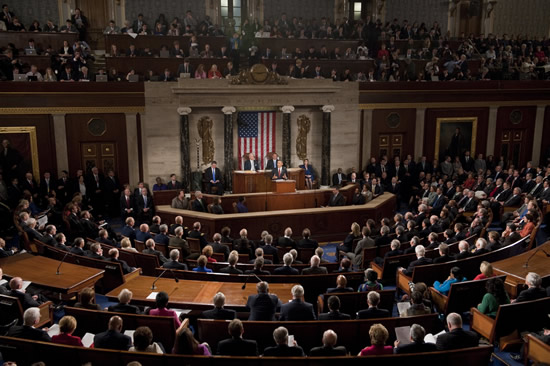How 40 Congressmen Are Challenging Obamacare
Hans von Spakovsky / Michael Flynn /
The Supreme Court may have ruled once on the Patient Protection and Affordable Care Act, better known as Obamacare, but the debate about the law’s constitutionality is far from settled.
Forty members of the House of Representatives, led by Trent Franks (R–AZ), have filed an amicus brief in the latest case challenging the constitutionality of the Obama Administration’s crowning achievement (or failure, depending on your perspective). The lawsuit claims that the Obamacare legislation violates Article I, Section 7, Clause 1 of the Constitution, otherwise known as the Origination Clause.
In last year’s surprising and oft-criticized opinion in NFIB v. Sebelius, the Supreme Court upheld the act under Congress’s authority “To lay and collect Taxes” under the Spending Clause of the Constitution. Chief Justice John Roberts, writing for the majority, found that, despite the plain text of the statute, the individual mandate was actually a tax and not a penalty.
The Origination Clause provides: “All Bills for raising Revenue shall originate in the House of Representatives.” Our Founding Fathers understood that the power to tax, if abused, involved the power to destroy. They viewed the Origination Clause as a safeguard for liberty by insisting that the power to initiate new taxes should be left with the lawmakers who were most directly accountable to voters—members of the House, who are elected every two years in local districts.
What this means for Obamacare is that if the individual mandate is indeed a tax, as the Supreme Court said it is, then it would have to have been introduced in the House. With Obamacare, Senate Democrats used a tactic known as “gut and amend”: They took a bill providing tax credits for veterans purchasing new homes, H.R. 3590, and stripped away the entire language of the bill, keeping only the related House bill number. They then “amended” the bill with the language that would become the 2,074 pages of Obamacare.
While all bills raising revenue must originate in the House, the Senate is allowed to amend such spending bills. However, Franks and his colleagues argue that because the original veterans’ bill did not “raise revenue” and was entirely unrelated to health care, it would stretch the notion of “amending” bills to include complete demolition of a bill’s language and intent, then inserting completely new language on an unrelated issue.
The case, Sissel v. United States Department of Health and Human Services, has already been dismissed by the federal district court but has been appealed to the D.C. Circuit Court of Appeals. Franks recently said on the floor of the House that if the courts don’t enforce the Origination Clause, then “it would allow the Obama administration to blow yet another hole in the constitutional fabric of this noble republic.”
Precedent shows a low bar for Senators to clear in overcoming Origination Clause challenges. As the Justice Department pointed out in its brief to the district court, there have been only eight Origination Clause cases in our history, and the Supreme Court “has never invalidated an act of Congress on that basis.”
The case might also be subject to the Political Question Doctrine, where the Court could refuse to rule on the merits of the case if it determines that this a political issue best left to Congress and the President.
But the latest legal challenge to Obamacare presents some interesting questions as to the meaning of the Origination Clause and the extent of senatorial power under the Constitution.
Michael Flynn is currently a member of the Young Leaders Program at The Heritage Foundation. For more information on interning at Heritage, please click here.

